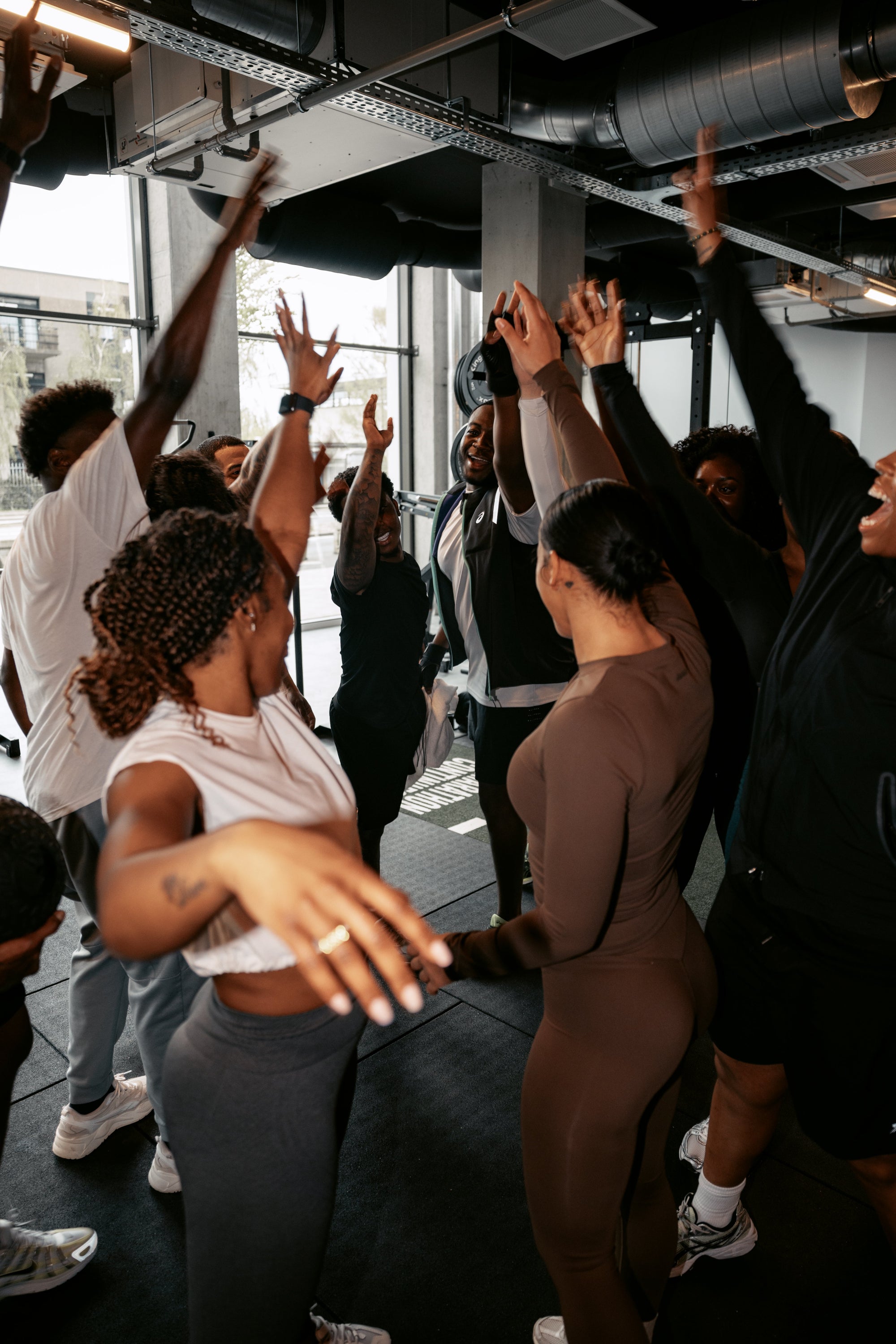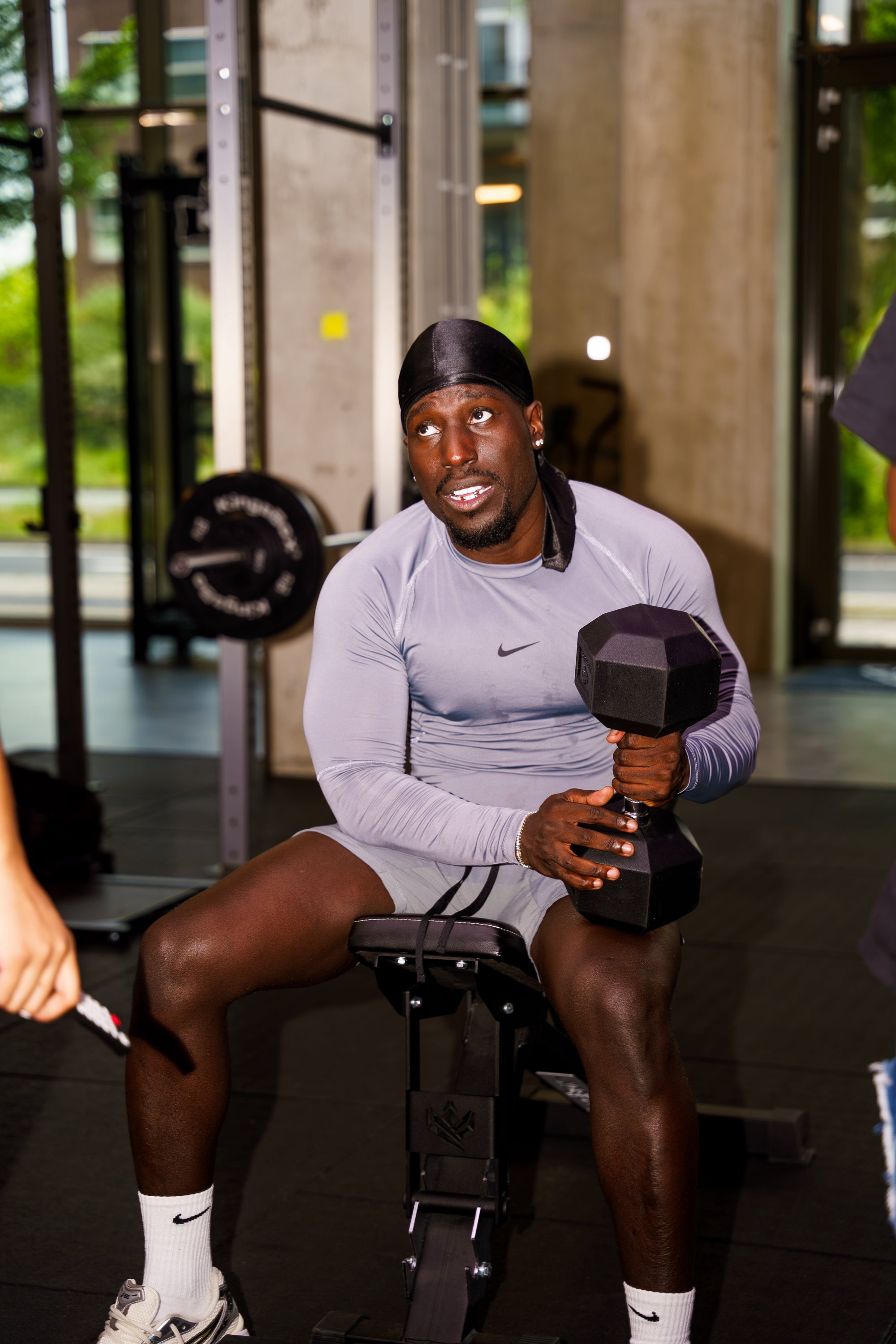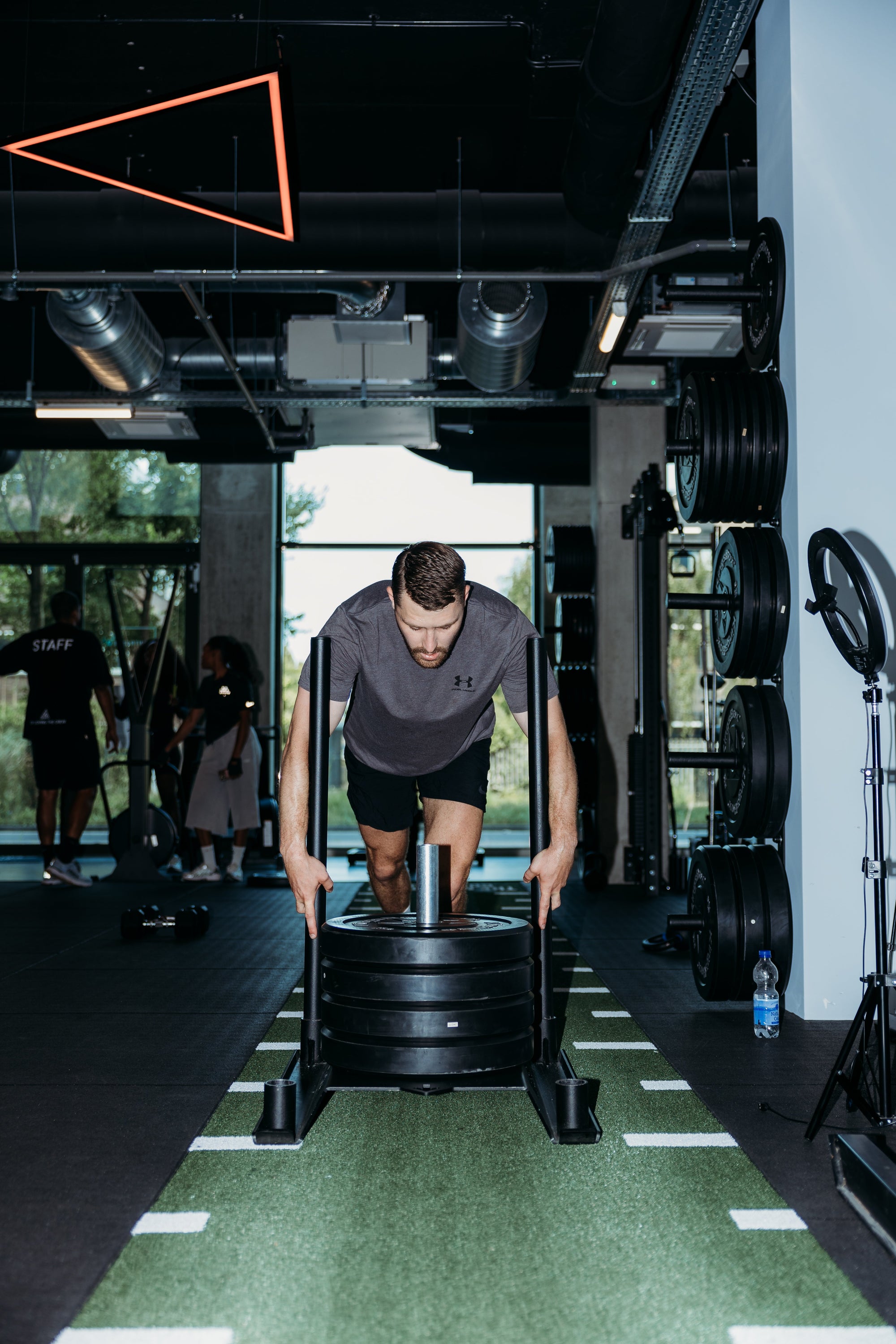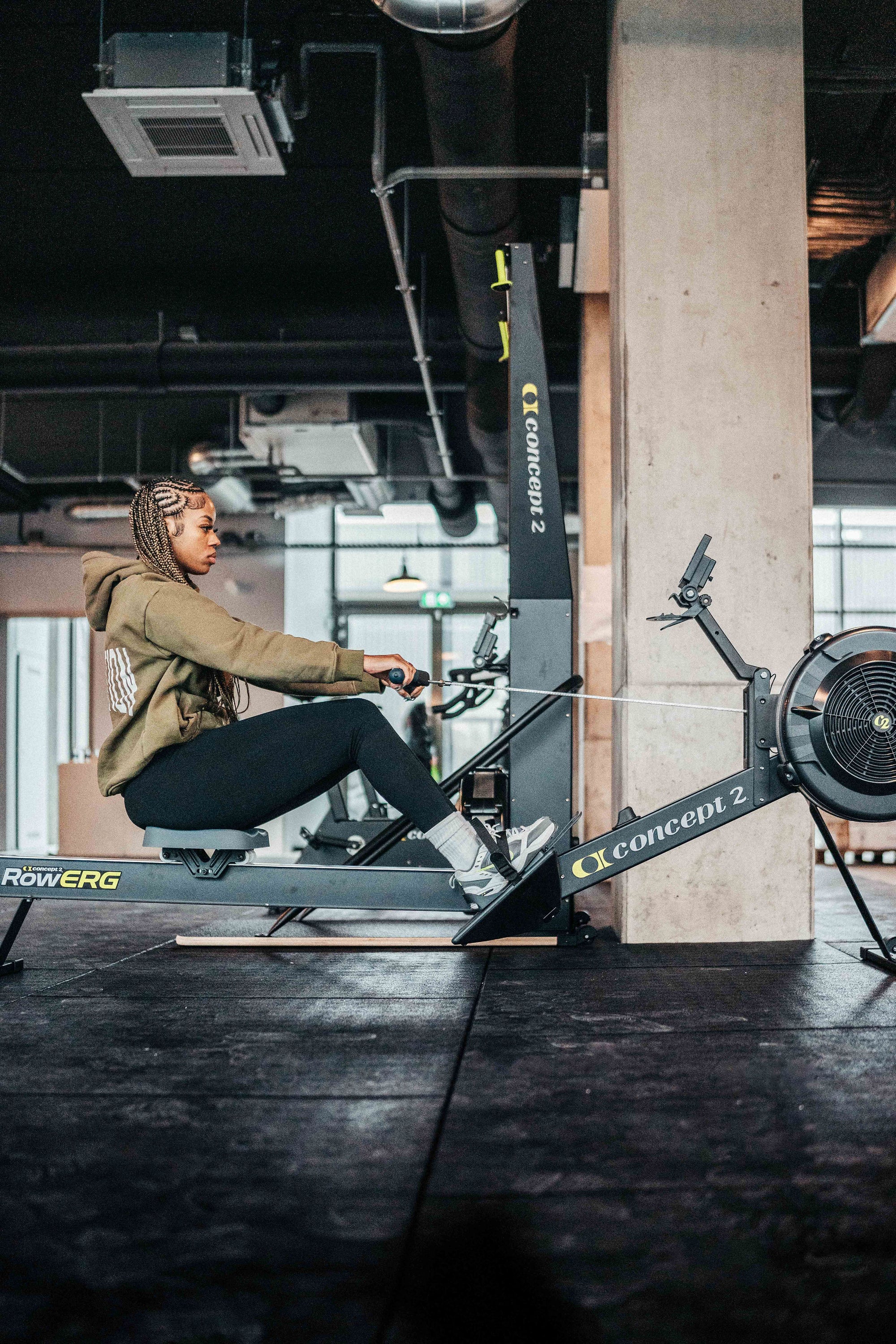Maximizing Your Potential at Pre-Event Workshops: Tips and Tricks from Coach Zwayder
Champion, preparing for a Hyrox event goes far beyond the race itself—it starts with the work you put in long before race day. One of the best-kept secrets among elite athletes is the power of pre-event workshops. At BallinFit, we host workshops that not only fine-tune your physical performance but also sharpen your mental focus, ensuring you're fully prepared for every challenge on the day of the event. In this comprehensive guide, we’ll dive deep into how these workshops can help you maximize your potential, with actionable tips and real-world examples, plus exclusive insights from our head coach, Zwayder.
What Are Pre-Event Workshops and Why They Matter
Pre-event workshops are structured training sessions designed to simulate race day conditions, review essential techniques, and provide personalized feedback. These workshops serve as a rehearsal for the competition, allowing you to identify and improve on any weak spots in your performance.
The Core Benefits:
-
Technique Refinement:
Focus on perfecting key movements like wall balls, sled pushes, and sprint starts.
-
Pacing and Transition Practice:
Work on your pacing strategies and smooth transitions between different race segments.
-
Mental Rehearsal:
Use visualization and goal-setting exercises to build confidence and focus.
-
Immediate Feedback:
Get real-time input from Coach Zwayder and your training partners, which helps adjust your approach before race day.
-
Team Building:
Connect with fellow Hyrox athletes, share insights, and build a support network that motivates you to push harder.
Coach Zwayder’s Insight:
"Pre-event workshops are a game-changer. They allow you to step into the competition with a clear plan, refined technique, and a strong mind. It’s about rehearsing success so that on race day, every move feels natural."
How to Make the Most of Your Pre-Event Workshop
Maximizing your potential at these workshops requires preparation, engagement, and a willingness to push yourself beyond your comfort zone. Here’s how you can get the most out of every session:
1. Prepare Ahead of Time
Before You Attend:
-
Review Your Past Performance:
Reflect on your previous races or training sessions. Identify areas where you struggled—whether it was pacing, technique, or transitions.
-
Set Specific Goals:
Determine what you want to achieve in the workshop. Do you need to improve your wall ball form? Are you looking to refine your sprint technique? Clear objectives will help you focus your efforts.
-
Gather Feedback:
If possible, review any video footage of your races or training sessions. Note specific aspects you’d like to address and come prepared with questions for Coach Zwayder.
Actionable Tip:
Keep a training journal and list your key challenges and goals ahead of the workshop. This will serve as your roadmap during the session.
2. Engage Fully During the Workshop
Once you’re in the workshop, it’s time to be all in.
Participate Actively:
-
Warm-Up Thoroughly:
Start with the dynamic warm-up provided. This is crucial to prepare your muscles and mind for the drills ahead.
-
Focus on Drills:
Engage in each drill with full intensity. Whether it’s sprint intervals, technique drills for wall balls, or transition practices, commit to every movement. Don’t be afraid to push your limits.
-
Ask for Feedback:
During drills, ask Coach Zwayder for real-time feedback. If your form feels off or your transitions aren’t as smooth as you’d like, request specific pointers to improve.
-
Observe Others:
Watch how your fellow athletes execute the drills. Sometimes, a peer’s technique can offer a new perspective or a simple tweak that makes all the difference.
Coach Zwayder’s Tip:
"The more engaged you are, the more you’ll get out of these sessions. It’s a collaborative environment—every question and every piece of feedback is a stepping stone towards perfection."
3. Focus on Technique and Transition Efficiency
One of the biggest advantages of a pre-event workshop is the opportunity to fine-tune your technique.
Key Areas to Work On:
-
Movement Precision:
Break down each movement into its core components. For example, with wall balls, concentrate on achieving a deep squat and a fluid overhead throw. Record your practice if possible and compare it with ideal form demonstrations.
-
Transition Drills:
Practice moving between stations as if you were in a real race. Focus on minimizing downtime and keeping your heart rate in check during these transitions.
-
Simulate Race Conditions:
Use the workshop to replicate the pressure and intensity of a competition. This might mean performing drills under timed conditions or practicing with a slight competitive edge by comparing split times with your peers.
Actionable Strategy:
Work on one specific drill until it becomes second nature. For instance, if your transitions are your weak point, spend extra time on these segments until you can execute them flawlessly.
4. Incorporate Mental Training
While the physical drills are essential, don’t neglect your mental preparation during the workshop.
Mental Exercises to Integrate:
-
Visualization Sessions:
Spend a few minutes after each drill to close your eyes and visualize executing that movement perfectly during an actual competition.
-
Goal-Setting Breaks:
Take short breaks between drills to reflect on your progress. Set mini-goals for improvement and mentally rehearse achieving them.
-
Mindfulness Practices:
Practice deep breathing or a brief mindfulness exercise to reset your focus, especially if a drill leaves you feeling overwhelmed.
Real-World Example:
One athlete, Lisa, used visualization techniques during her workshops to overcome anxiety about a particular obstacle. By mentally rehearsing the movement repeatedly, she noticed her confidence and performance improved significantly during competitions.
5. Post-Workshop Review
The work doesn’t stop when the workshop ends. Reviewing what you’ve learned is crucial for long-term improvement.
How to Review Effectively:
-
Review Your Journal:
Immediately after the workshop, write down what you learned. Note specific feedback, challenges you encountered, and areas that need further work.
-
Discuss with Peers:
Talk with other attendees about their experiences. Sharing insights and comparing notes can help solidify the lessons learned.
-
Plan Your Next Steps:
Create an action plan based on the workshop’s feedback. Outline what drills you’ll focus on in the coming weeks and set measurable goals for improvement.
Coach Zwayder’s Tip:
"Reflection is key. Every workshop is a learning experience, but the real progress happens when you analyze your performance afterward and adjust your training accordingly."
Real-World Impact: Success Stories from Pre-Event Workshops
At BallinFit, pre-event workshops have transformed the performance of many of our athletes. Consider Tom, who struggled with transitions in his early races. After attending several workshops focused on transition drills, his performance improved drastically—he shaved seconds off his race time and felt more confident navigating between stations.
Another standout is Emma, who found that by focusing on detailed technique drills during the workshops, her overall form improved, reducing her injury risk and increasing her efficiency in each segment of the race. These success stories are a testament to the power of structured, focused training outside of standard gym sessions.



